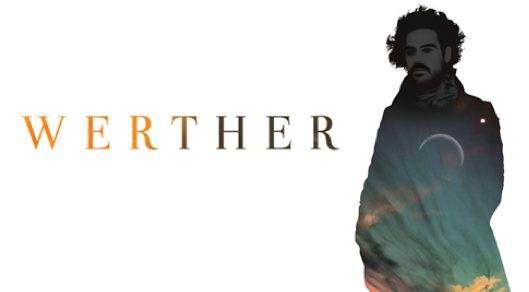Neil McEwan speaks to director Pia Furtado about the challenges and discoveries to be found in taking on a little performed and emotionally charged opera and her vision for bringing it to the stage.
If you like a little bit of Sturm not to mention a smidgen of Drang with your operatic diet then Scottish Opera‘s latest production, Werther is for you. Based upon the first hit novel of the 19th century – Johann Wolfgang von Goethe’s epistolary tale of obsessive love, The Sorrows of Young Werther and put to music later that century by Jules Massenet, it comes with guarantees of grand passions and raw emotions bursting from the stage combined with musical and performance talents Scottish Opera’s excellent cast.
What are the particular challenges/benefits of taking on a lesser known opera?
It’s very interesting and in many ways it’s a very opera specific question. My default when I’m engaging with a piece is to take the stance that people wont have seen it before. Obviously with the more familiar operatic repertoire that’s very unlikely, it’s a little like directing Romeo and Juliet perhaps. I think in terms of wanting to engage an audience in the story you do have to assume that no one will have seen it before in order to be as clear in the storytelling as possible. One of the reliefs of working with a piece such as Werther is I can rest on the idea that I’m taking the story to people for the first time.
How much did you refer to the original Goethe work?
I did look back to Goethe. I hadn’t read it for about ten years and it’s important and fascinating research to go back to the original text. What I think is fascinating having done that is how far Massenet has departed from the original and the artistic licence that he took with the piece. Where it’s been really useful is that there are quite a few missing story elements in the opera and that’s been very helpful in rehearsals in answering key character questions and questions of back story and we have felt it’s supported our process. We’ve also not felt tied to it so in making character decisions we’ve not felt beholden to it. Also in terms of design whilst it was on the table as we were conceptualising the piece it hasn’t been something that defined where we went.
Given the nature of the story, would it be fair to say that only opera with it’s willingness to embrace heightened emotions could probably do the tale justice?
Absolutely I very much agree with that and I was having that same conversation with the company, because one of the things that’s been very important to our concept is the idea of emotional access and the volume of emotions which of course we’re not used to dealing with; certainly in modern drama and certainly in modern life. I would say that the period we’re living in now is antithetical to that German romantic Sturm and Drang period. So embracing has been key to the rehearsal process. You can’t shy away from it with this story, it’s about big feelings. What I keep saying in rehearsals is that feelings haven’t gotten smaller we’ve just got better at hiding them and the volume of emotions that we all feel are just the same and what Massenet has captured is the ability to let rip. He’s also done it structurally fascinatingly because he uses arias as soliloquies in a very fascinating way and that’s very much influenced our conception of the piece.
I think it is possible to look at the piece and think of what happened in real time as being not so dissimilar perhaps to what we might see in modern drama. For example what Werther is able to express through letters in the Goethe, which are these extraordinarily eloquent, poetic lines of epic emotion, Massenet transforms into extraordinary sung lines, but you get the sense that Werther in person might not have been able to express himself in the same way.
In terms of design will you be keeping the 19th century setting or updating the piece?
We haven’t gone with the period of the book. I was taken with the the key obsessions of Goethe for Werther which were nature and the growth of the artist. Because of that we were very taken with the Art Nouveau period and how all of the key players in the movement were obsessed with natural forms and very often you see juxtaposition of those forms and the sacred. So a lot of that seemed to match up with the textual obsession of Werther so that’s were we ended up in time.
Early conversations with the conductor and early text work led me to looking back rather than attempting any contemporaneous concepts. Another reason I found myself looking back is that politics – particularly in regards to Charlotte, do speak of an era where social pressures limited personal freedom and that really I think decided a lot of the decisions in terms of setting.
Both the Romantic period when the book was written and the Art Nouveau period were both periods where people had to express themselves in different ways and they were quite out there. I remember when we were in the design phase I went to Barcelona for the first time and I remember sitting in the Sagada Familia and I remember thinking thinking Whoa! Similarly with the German Romantic period it wore it’s heart on it’s sleeve in a very epic way. I personally think we’re probably due another period like it soon. It certainly feels like nature is rearing its head in all sort of ways and I feel artists are bound to respond to that. I also think that artists are ready to let rip about some of the general societal extremities that are out there right now.
